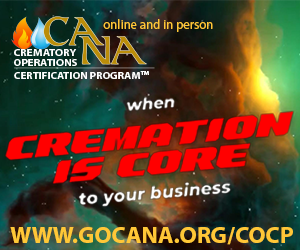Will the pandemic change our grief
 Human emotions are an interesting dynamic. The human species can go in and out of emotions and many times not even help themselves in that process. Think about “fear”. You’ve been separated from your group on a camping and canoe outing and you don’t know where anybody else is. . . .fear might overcome you.
Human emotions are an interesting dynamic. The human species can go in and out of emotions and many times not even help themselves in that process. Think about “fear”. You’ve been separated from your group on a camping and canoe outing and you don’t know where anybody else is. . . .fear might overcome you.
And, you may not be able to shake that feeling of fear no matter how hard you try until somebody finds you or you find them. At that time, I’m guessing the first emotion that replaces fear is that of elation, and then when you think about it for a few minutes, the emotion of relief, and maybe thankfulness, comes over you.
Over the years of working in the funeral business, and having had death in my own life experience, I have come to try to get a grip on the emotion of “grief”. And, I can tell you, it is not something that is easy to get a grip on. . .or for that matter, to understand fully, even when you have worked in a profession that sees it every day or lived it as a member of a family who has lost a loved one.
The legendary Elisabeth Kubler-Ross explained her idea of the sequential reaction to loss over forty years ago and most of us in the death care profession understand, and believe in its philosophy. Her philosophy and explanation was that loss, including death, grips the person who has lost something in these five stages. . . .Denial, Anger, Depression, Bargaining, and Acceptance.
I believe in that process and I even put a sixth stage following Acceptance. Call this stage what you want. . it could be Recovery or Normalcy — although the normalcy we would now have would be a “New Normalcy” — a normal that is different from before our loss — but something that now seems like normalcy in the world we are living in.
I also believe that the time it takes to move through these stages is unique to each individual and also unique to the relationship that the person had with what they lost. I’ll illustrate that idea using two real life cases for me. In my early 20’s my great Aunt Alma died in her mid 90’s. I was not real close to Alma and did not see her often. My mother called me and explained that Alma had passed away and I need to be thinking ahead to going to the funeral. As I look back on that phone call, I realize that I probably passed through all five stages of Elisabeth Kubler Ross’ five stages of grief before I had hung the phone back up. . . .and, when I hung the phone up, I was already into Recovery or a Normalcy moving forward with my normal plans for that day.

Tom Anderson
Funeral Director Daily
Compare that to when my father died. It was 42 years ago this month and I was a college Freshman. I had a great relationship with my dad, admired him very much, and tried to learn as much as I could from him. I can distinctly remember the denial and the anger. I can also remember how hard “Acceptance” was. . . . I remember studying that Spring knowing I was going to go home on the ensuing weekend and thinking “I will see Mom and Dad this weekend”. However, that was after Dad had died and I had to pinch myself and tell myself, “No, I won’t see Dad. . .he is gone.”
I tell you this story to point out how important I think ritual can be in getting through the grief stages. When my dad died, I had the opportunity to attend a visitation, see him in the casket, attend a funeral where he was celebrated, and see his casket be put into the ground.. . . and yet, I had to pinch myself later to remind me that it was “real’. . . Dad was gone. Grief is tough, it sometimes can take a great amount of work to get through it. . . .anybody who has worked in the death care field for any length of time has seen that first hand.
So, my concern is what type of unresolved grief are we leaving out there in today’s environment of “No Large Gatherings” and no funeral crowds. Another old saying that I’ve heard and agree with is “just as joy shared is joy increased”, “grief shared is grief diminished”. Winning a championship with your teammates increases that joy — think of winning a championship with nobody around — it would not be much fun. . . “increasing the joy” is the reason we have family at joyous celebrations like graduations and weddings.
And, at a funeral or visitation or memorial service, we have our friends come to offer condolences, give us hugs, and reminisce about the person that has passed away. . . . .”Sharing that grief is helping to diminish that grief”.. . . but in today’s “no large gatherings” world, that grief is not being shared. . .those who have lost loved ones are being expected to diminish that grief on their own. . . . . .that is what I worry about.
It is something I worry about and I also worry about a mental health crisis from what some term as unresolved grief moving forward. Funeral directors and other professionals can do what they can, but mourners really need to share their losses with others to be able to move forward to recovery or that “new normal”. Obviously, this pandemic situation is not conducive to that environment.
Here are three interesting articles that I recently found that explain how some of this sharing is being done in the best way possible. They do show that people can be resourceful:
- A shovel per mourner, traditions being remade at survivor’s Maryland funeral. The Times of Israel
- Fox honored in a unique way. Ohio’s Country Journal
- We should mourn how the pandemic has complicated mourning. Cleveland.com (OH)
More from the world of Death Care:
- Cemetery perpetual care often isn’t. Galveston County Daily News (TX)
- Crematorium remains completely unaffected after fire earlier this month. Andover Advertiser. United Kingdom
- Obituary: J. Russell Noga. New Castle, PA.
- Andre Dawson’s post-Hall of Fame career as a funeral director presents challenges amid coronavirus. USA Today.
[wpforms id=”436″ title=”true” description=”true”]




















